Fleurs du Mal Magazine


Or see the index
1949: Josef Mengele arrive en Argentine. Caché derrière divers pseudonymes, l’ancien médecin tortionnaire à Auschwitz croit pouvoir s’inventer une nouvelle vie à Buenos Aires.
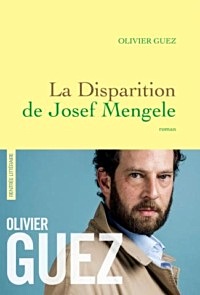 L’Argentine de Peron est bienveillante, le monde entier veut oublier les crimes nazis. Mais la traque reprend et le médecin SS doit s’enfuir au Paraguay puis au Brésil. Son errance de planque en planque, déguisé et rongé par l’angoisse, ne connaîtra plus de répit… jusqu’à sa mort mystérieuse sur une plage en 1979. Comment le médecin SS a-t-il pu passer entre les mailles du filet, trente ans durant?
L’Argentine de Peron est bienveillante, le monde entier veut oublier les crimes nazis. Mais la traque reprend et le médecin SS doit s’enfuir au Paraguay puis au Brésil. Son errance de planque en planque, déguisé et rongé par l’angoisse, ne connaîtra plus de répit… jusqu’à sa mort mystérieuse sur une plage en 1979. Comment le médecin SS a-t-il pu passer entre les mailles du filet, trente ans durant?
La Disparition de Josef Mengele est une plongée inouïe au cœur des ténèbres. Anciens nazis, agents du Mossad, femmes cupides et dictateurs d’opérette évoluent dans un monde corrompu par le fanatisme, la realpolitik, l’argent et l’ambition. Voici l’odyssée dantesque de Josef Mengele en Amérique du Sud. Le roman-vrai de sa cavale après-guerre.
Olivier Guez est l’auteur, entre autres, de L’Impossible retour, une histoire des juifs en Allemagne depuis 1945 (Flammarion), Éloge de l’esquive (Grasset) et Les Révolutions de Jacques Koskas (Belfond). Il a reçu en 2016 le prix allemand du meilleur scénario pour le film Fritz Bauer, un héros allemand.
Olivier Guez
La disparition de Josef Mengele Roman
EAN: 9782246855873
Parution: 16/08/2017
Pages: 240
Prix: €18.50
Editions Grasset
Prix Renaudot 2017 pour ‘La Disparition de Josef Mengele’ d’Olivier Guez
fleursdumal.nl magazines
More in: - Book News, - Bookstores, Archive Q-R, Art & Literature News, Awards & Prizes, PRESS & PUBLISHING, The Art of Reading, The talk of the town, WAR & PEACE
L’Allemagne nazie a sa légende. On y voit une armée rapide, moderne, dont le triomphe parait inexorable. Mais si au fondement de ses premiers exploits se découvraient plutôt des marchandages, de vulgaires combinaisons d’intérêts ?
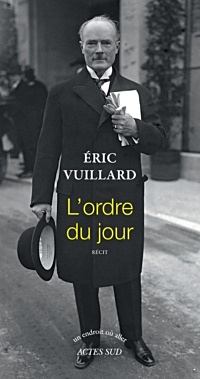 Et si les glorieuses images de la Wehrmacht entrant triomphalement en Autriche dissimulaient un immense embouteillage de panzers ? Une simple panne ! Une démonstration magistrale et grinçante des coulisses de l’Anschluss par l’auteur de Tristesse de la terre et de 14 juillet.
Et si les glorieuses images de la Wehrmacht entrant triomphalement en Autriche dissimulaient un immense embouteillage de panzers ? Une simple panne ! Une démonstration magistrale et grinçante des coulisses de l’Anschluss par l’auteur de Tristesse de la terre et de 14 juillet.
Ils étaient vingt-quatre, près des arbres morts de la rive, vingt-quatre pardessus noirs, marron ou cognac, vingt-quatre paires d’épaules rembourrées de laine, vingt-quatre costumes trois pièces, et le même nombre de pantalons à pinces avec un large ourlet. Les ombres pénétrèrent le grand vestibule du palais du président de l’Assemblée ; mais bientôt, il n’y aura plus d’Assemblée, il n’y aura plus de président, et, dans quelques années, il n’y aura même plus de Parlement, seulement un amas de décombres fumants.
Éric Vuillard, né en 1968 à Lyon, est écrivain et cinéaste. Il a réalisé deux films, L’homme qui marche et Mateo Falcone. Il est l’auteur de Conquistadors (Léo Scheer, 2009, Babel n°1330), récompensé par le Grand prix littéraire du Web – mention spéciale du jury 2009 et le prix Ignatius J. Reilly 2010. Il a reçu le prix Franz-Hessel 2012 et le prix Valery-Larbaud 2013 pour deux récits publiés chez Actes Sud, La bataille d’Occident et Congo ainsi que le prix Joseph-Kessel 2015 pour Tristesse de la terre et le prix Alexandre Viallate pour 14 juillet.
Eric Vuillard
L’ordre du jour
Mai, 2017
160 pages
ISBN 978-2-330-07897-3
prix indicatif : 16, 00€
Actes Sud
fleursdumal.nl magazine
More in: - Book News, - Bookstores, Archive U-V, Art & Literature News, Awards & Prizes, PRESS & PUBLISHING, The Art of Reading, WAR & PEACE
Deutschland 1940: Max Koenig ist Professor für Altertumsforschung. Ein vererbtes Nervenleiden reißt ihn aus seinem beruflichen Leben und fort von seiner Familie.
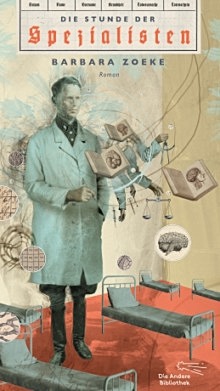 Er kommt in die Wittenauer Heilstätten und trifft dort auf Schwester Rosemarie, die versucht zu helfen, wo sie kann. Trotz seiner Hinfälligkeit wird Koenig zum Mittelpunkt einer kleinen Gruppe: dem Studienrat Dr. Carl Hohein, der eine Litanei auf die Farbe »Schwarz« komponiert, der jungen Pianistin Elfie, deren Hände zittern und die »Traumdeutsch« spricht, und schließlich Oscar, einem Jungen mit Trisomie 21.
Er kommt in die Wittenauer Heilstätten und trifft dort auf Schwester Rosemarie, die versucht zu helfen, wo sie kann. Trotz seiner Hinfälligkeit wird Koenig zum Mittelpunkt einer kleinen Gruppe: dem Studienrat Dr. Carl Hohein, der eine Litanei auf die Farbe »Schwarz« komponiert, der jungen Pianistin Elfie, deren Hände zittern und die »Traumdeutsch« spricht, und schließlich Oscar, einem Jungen mit Trisomie 21.
Der Alltag auf der Station, die mangelhaften Essensrationen und die rassenhygienischen Kommentare der medizinischen »Spezialisten« werden nur durch die gegenseitige Unterstützung und kleine Freuden, wie die Besuche von Frau und Schwägerin, erträglich. Sie hoffen darauf, sich nach dem Krieg im Traumland Italien wiederzufinden. Doch Max Koenig und Oscar werden verlegt und ihren Angehörigen entzogen.
Töten wird sie Dr. Friedel Lerbe, ein Arzt, SS-Mann und fanatischer Verfechter der Rassenhygiene. Als Leiter einer Tötungsanstalt führt er das NS-»Euthanasie«-Programm mit bürokratischer Präzision aus – jedes Detail des Ablaufs wird von ihm kontrolliert. Ein ganzer Stab von »Pflegern«, Sekretärinnen, Technikern und Leichenbrennern steht diesem »Spezialisten« bei seinem Handwerk zur Seite.
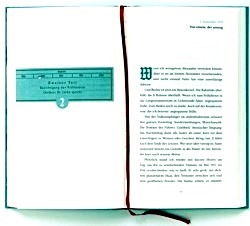 Barbara Zoeke schildert das Geschehen aus unterschiedlichen Perspektiven – empathisch und erschütternd klar. Es gelingt ihr, dieses Verbrechen der Nationalsozialisten zu vergegenwärtigen und den Opfern, Angehörigen und Tätern eine literarische Stimme zu geben.
Barbara Zoeke schildert das Geschehen aus unterschiedlichen Perspektiven – empathisch und erschütternd klar. Es gelingt ihr, dieses Verbrechen der Nationalsozialisten zu vergegenwärtigen und den Opfern, Angehörigen und Tätern eine literarische Stimme zu geben.
Barbara Zoeke erhält für ihren Roman „Die Stunde der Spezialisten“ den Brüder-Grimm-Preis 2017 der Stadt Hanau!
Die Preisverleihung findet am 17. November in der Hanauer Stadtbibliothek/Kulturforum Hanau statt. Die Laudatio auf die Preisträgerin wird der Literatur-Chef der Frankfurter Allgemeinen Zeitung Andreas Platthaus halten. Die Auszeichnung ist mit 10.000 Euro dotiert.
Die Jury mit Literaturkritikerin Dr. Insa Wilke, Literaturprofessor Professor Dr. Heiner Boehncke und dem ehemaligen Vorsitzenden des hessischen Bibliotheksverbandes Aloys Lenz MdL a.D. votierte nach eingehender Diskussion der eingereichten Veröffentlichungen einstimmig für das kürzlich im Verlag „Die Andere Bibliothek“ erschienene Buch. Der Magistrat der Stadt Hanau schloss sich einmütig dem Votum der Jury an.
Aus der Jury-Entscheidung:
„Barbara Zoekes Roman „Die Stunde der Spezialisten“ widmet sich einem in der deutschsprachigen Literatur immer noch auffällig selten erzählten Verbrechen der Nationalsozialisten: der Ermordung von Psychiatriepatienten und Behinderten, allgemein unter dem Euphemismus 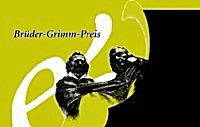 „Euthanasie“ bekannt. Autorinnen wie Olga Martynova und entfernt auch Angela Steidele haben sich zuletzt mit diesem Stoff auseinandergesetzt; Barbara Zoeke ist jedoch die erste Autorin, die wohl auch aufgrund ihrer psychiatrischen Praxis die besondere Sprache der Patienten in eine literarische verwandelt und ihnen so auf besondere Weise ein Denkmal setzt. Virtuos komponiert sie auf diese Weise aus den Stimmen der Opfer wie auch der Täter in je spezifischen Sprechweisen ein beklemmendes Kunstwerk in humanistischen Traditionen, das bei seinen Leserinnen und Lesern für einen inneren Aufruhr sorgt, wie ihn nur hervorragende literarische Werke hervorzubringen imstande sind. Die Jury sieht in der meisterlichen Sprache des Romans und dem sensiblen Umgang mit den unterschiedlichen Stimmen überdies eine Nähe zu dem Werk der Brüder Grimm, das sich auf der Grenze zwischen Archiv, Sprachforschung und Erzählen bewegt.“
„Euthanasie“ bekannt. Autorinnen wie Olga Martynova und entfernt auch Angela Steidele haben sich zuletzt mit diesem Stoff auseinandergesetzt; Barbara Zoeke ist jedoch die erste Autorin, die wohl auch aufgrund ihrer psychiatrischen Praxis die besondere Sprache der Patienten in eine literarische verwandelt und ihnen so auf besondere Weise ein Denkmal setzt. Virtuos komponiert sie auf diese Weise aus den Stimmen der Opfer wie auch der Täter in je spezifischen Sprechweisen ein beklemmendes Kunstwerk in humanistischen Traditionen, das bei seinen Leserinnen und Lesern für einen inneren Aufruhr sorgt, wie ihn nur hervorragende literarische Werke hervorzubringen imstande sind. Die Jury sieht in der meisterlichen Sprache des Romans und dem sensiblen Umgang mit den unterschiedlichen Stimmen überdies eine Nähe zu dem Werk der Brüder Grimm, das sich auf der Grenze zwischen Archiv, Sprachforschung und Erzählen bewegt.“
Dr. Barbara Zoeke verbrachte ihre Kindheit im thüringischen Vogtland und studierte in Köln und Münster. Sie ist habilitierte Psychologin, forschte in den USA und war über mehrere Jahre im Vorstand der “International Society of Comparative Psychology”. Sie lehrte und forschte an den Universitäten von Münster, Frankfurt, Würzburg und München. Neben wissenschaftlichen Arbeiten zur Wahrnehmung und zum Gedächtnis veröffentlichte sie erzählende Prosa, Lyrik und Sachbuchtexte. Die Autorin lebt seit 2008 in Berlin.
Barbara Zoeke
Die Stunde der Spezialisten
Seitenanzahl: 300
Originalausgaben
Bandnummer: 393
Originalausgabe,
nummeriert und limitiert
Gestaltung: Lars Henkel.
Kunstvolle Collagen für Cover,
Bezug, Vor- und Nachsatzpapier.
Fadenheftung, Lesebändchen.
ISBN: 9783847703938
2017 – 42,00 EUR
Die Andere Bibliothek
10969 Berlin
# website die andere bibliothek
fleursdumal.nl magazine
More in: - Book News, - Bookstores, Archive Y-Z, Art & Literature News, DRUGS & DISEASE & MEDICINE & LITERATURE, Grimm, Andersen e.o.: Fables, Fairy Tales & Stories, WAR & PEACE
De Jasmijnrevolutie, de Egyptische Revolutie, Euromaidan: het is nu moeilijk voor te stellen dat de Russische Revolutie, precies een eeuw geleden, beloofde de laatste revolutie te zijn.
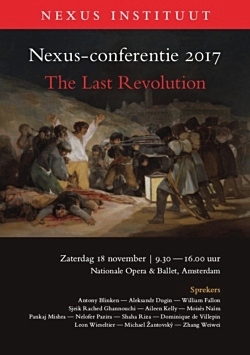 Ondanks bolsjewistisch optimisme en dromen van gelijkheid bracht zij evengoed, net als andere opstanden, een angstaanjagende vernietiging van vrijheid, waarden en waarheid.
Ondanks bolsjewistisch optimisme en dromen van gelijkheid bracht zij evengoed, net als andere opstanden, een angstaanjagende vernietiging van vrijheid, waarden en waarheid.
Revoluties bleven volgen.
Vragen over mens en maatschappij blijven onopgelost. Vanwaar revoluties? Welke machten bevrijden en welke onderdrukken?
Wat leren we uit het feit dat de Franse Revolutie eindigde in een bloedbad, de Russische Revolutie verwerd tot totalitarisme, maar de Amerikaanse Revolutie succesvol was?
Op zaterdag 18 november brengt Nexus gezaghebbende denkers, politici, wetenschappers en ideologen van over de hele wereld bijeen voor een gezamenlijke zoektocht naar antwoorden, ideeën en argumenten.
Wat voor vrijheidsbeweging wacht de 21e eeuw? En wie zijn de individuen die tegen gevestigde machten in durven denken, die wel in opstand komen? Waar halen zij die kracht vandaan? Wat zal de ware laatste revolutie zijn?
Deelnemers
Antony Blinken – diplomaat en strateeg van Clinton en Obama
Aleksandr Dugin – politiek filosoof en adviseur van Poetin
William Fallon – oud-bevelhebber Amerikaanse strijdkrachtenDeelnemers
Sjeik Rached Ghannouchi – toppoliticus en leider Tunesische revolutie
Aileen Kelly – expert Russische intellectuele geschiedenis
Pankaj Mishra – essayist en romancier
Moisés Naím – Venezolaans staatsman en politiek filosoof
Nelofer Pazira – Afghaans-Canadees filmmaker en schrijver
Shaha Riza – Arabisch activist
Dominique de Villepin – Frans staatsman en diplomaat
Leon Wieseltier – publiek intellectueel
Michael Žantovský – diplomaat, vertaler, woordvoerder en vriend van Václav Havel
Zhang Weiwei – filosoof van China als belangrijkste supermacht
Conferentie
The Last Revolution
Nexus-conferentie 2017
Zaterdag 18 november 2017
9.30 — 16.00 uur
Nationale Opera & Ballet
Amsterdam
# meer info op website nexus instituut
fleursdumal.nl magazine
More in: - Book News, - Book Stories, Art & Literature News, CRIME & PUNISHMENT, DICTIONARY OF IDEAS, Nexus Instituut, NONFICTION: ESSAYS & STORIES, PRESS & PUBLISHING, REPRESSION OF WRITERS, JOURNALISTS & ARTISTS, WAR & PEACE
The Board of Trustees of the Peace Prize of the German Book Trade has chosen the Canadian author, essayist and poet Margaret Atwood to be the recipient of this year’s Peace Prize.
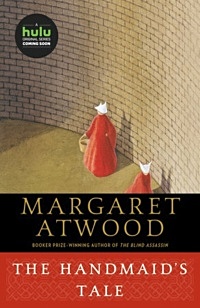 The award ceremony will take place on Sunday, October 15, 2017, the final day of the Frankfurt Book Fair, at the Church of St. Paul in Frankfurt am Main. The ceremony will be broadcast live on German public television. The Peace Prize has been awarded since 1950 and is endowed with a sum of €25,000.
The award ceremony will take place on Sunday, October 15, 2017, the final day of the Frankfurt Book Fair, at the Church of St. Paul in Frankfurt am Main. The ceremony will be broadcast live on German public television. The Peace Prize has been awarded since 1950 and is endowed with a sum of €25,000.
In her wide range of novels, essays and volumes of poetry, Canadian author Margaret Atwood has demonstrated a keen political intuition and a deeply perceptive ability to detect dangerous and underlying developments and tendencies.
Margaret Eleanor Atwood was born in Ottawa on November 18, 1939 and spent the first part of her childhood in the forests of northern Quebec, where her father conducted research as an entomologist. During this time, she and her older brother and younger sister were taught at home by their mother. In 1946, when her father took up a position at the University of Toronto, Atwood began attending regular school for the first time. From 1957 to 1962, she studied English and literature at universities in Toronto and Cambridge, Massachusetts. In 1963, she got her professional life underway at a market research company, and in 1964, she began working as a professor of literature at various universities.
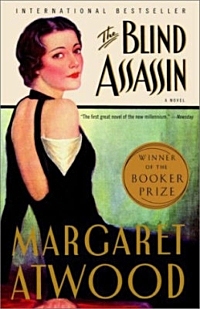 Atwood started publishing her first poems (see »The Circle Game«) in the early 1960s in what she referred to as a »private printing press«. She then continued to make an increasingly respected name for herself throughout the 1970s with a number of further volumes of poetry. It was at this time in her career that she began to focus on writing novels. Today, she is considered the most important and most successful author in Canada. Her work, which comprises novels, short stories, essays, poetry, stage plays, screenplays and children’s books, has been translated into more than 30 languages.
Atwood started publishing her first poems (see »The Circle Game«) in the early 1960s in what she referred to as a »private printing press«. She then continued to make an increasingly respected name for herself throughout the 1970s with a number of further volumes of poetry. It was at this time in her career that she began to focus on writing novels. Today, she is considered the most important and most successful author in Canada. Her work, which comprises novels, short stories, essays, poetry, stage plays, screenplays and children’s books, has been translated into more than 30 languages.
Atwood achieved far-reaching national and international recognition with the publication of her first work of literary criticism, »Survival: A Thematic Guide to Canadian Literature« (1972), in which she examined the role of Canadian literature and literary history with tremendous wit and concision. She followed that up with her first two novels, »The Edible Woman« (1969) and »Surfacing« (1972), in which she explored the perception of women’s role in modern Canada.
In 1985, Atwood published »The Handmaid’s Tale«, a dystopian novel in the tradition of George Orwell. The novel depicts a totalitarian society in which women are meticulously oppressed and used as birth machines. By taking up certain social tendencies of her day and following their logic to its latent conclusion, Atwood was able to create a novel of timeless relevance. The Handmaid’s Tale brought her to the peak of her already impressive literary career, and in 1989, German director Volker Schlöndorff even directed a film version. Today, precisely due to its enduring topicality, the novel is back on bestseller lists and experiencing a renaissance in American society under Donald Trump.
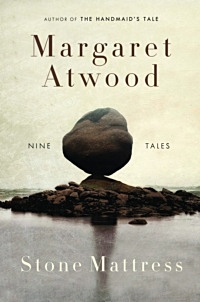 After »Cat’s Eye« (1988), which explores the childhood and friendship of two women in post-war Canada, and »The Robber Bride« (1993), in which she examines women’s darker side, Atwood published »Alias Grace« (1996), a historical fiction about a mysterious girl sentenced to life in prison for murder in the mid 19th century. After »The Blind Assassin« (2000), a broad portrait of Canadian society in the 20th century that garnered her the Booker Prize for Fiction, she shifted her focus to themes of ecological devastation and dangerous social tendencies in the post-apocalyptic worlds of her end-of-times trilogy »Oryx und Crake« (2003), »The Year of the Flood« (2009) and »MaddAddam« (2013). Known today for being an author and an environmental activist, Atwood coined the term »speculative fiction« to describe her work, although nothing she describes in her novels is pure invention. She takes a similar approach in her socially critical work »Payback. Debt and the Shadow Side of Wealth« (2008), a collection of lectures in which she examines the preconditions and consequences of the global financial crisis. Drawing on facts from cultural history, literature and linguistics, she spotlights the concept of economic and moral guilt found in the economic disaster.
After »Cat’s Eye« (1988), which explores the childhood and friendship of two women in post-war Canada, and »The Robber Bride« (1993), in which she examines women’s darker side, Atwood published »Alias Grace« (1996), a historical fiction about a mysterious girl sentenced to life in prison for murder in the mid 19th century. After »The Blind Assassin« (2000), a broad portrait of Canadian society in the 20th century that garnered her the Booker Prize for Fiction, she shifted her focus to themes of ecological devastation and dangerous social tendencies in the post-apocalyptic worlds of her end-of-times trilogy »Oryx und Crake« (2003), »The Year of the Flood« (2009) and »MaddAddam« (2013). Known today for being an author and an environmental activist, Atwood coined the term »speculative fiction« to describe her work, although nothing she describes in her novels is pure invention. She takes a similar approach in her socially critical work »Payback. Debt and the Shadow Side of Wealth« (2008), a collection of lectures in which she examines the preconditions and consequences of the global financial crisis. Drawing on facts from cultural history, literature and linguistics, she spotlights the concept of economic and moral guilt found in the economic disaster.
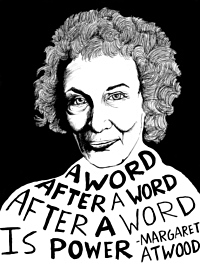 In the past several years, Atwood had rounded out her literary oeuvre with a number of works, including »Scribbler Moon«, a novel that will be published no sooner than 2114 as part of the Future Library Project. She also published »The Tent« (2006) and »Stone Mattress« (2014), as well as the novels »The Heart Goes Last« (2015) and »Hag-Seed« (2016). In addition to writing, Atwood continues to be active both politically and socially. In Germany, the latest product of her efforts is a volume of collected essays translated into German and set for publication in November 2017; »Aus Neugier und Leidenschaft« presents the cosmos of Margaret Atwood, including reviews, travel reports, writings on ecological themes and short stories. In May 2017, Atwood joined Salman Rushdie at the head of a campaign to garner support and higher levels of attention for authors suffering persecution and censorship. The campaign involves more than 200 writers and artists belonging to PEN International.
In the past several years, Atwood had rounded out her literary oeuvre with a number of works, including »Scribbler Moon«, a novel that will be published no sooner than 2114 as part of the Future Library Project. She also published »The Tent« (2006) and »Stone Mattress« (2014), as well as the novels »The Heart Goes Last« (2015) and »Hag-Seed« (2016). In addition to writing, Atwood continues to be active both politically and socially. In Germany, the latest product of her efforts is a volume of collected essays translated into German and set for publication in November 2017; »Aus Neugier und Leidenschaft« presents the cosmos of Margaret Atwood, including reviews, travel reports, writings on ecological themes and short stories. In May 2017, Atwood joined Salman Rushdie at the head of a campaign to garner support and higher levels of attention for authors suffering persecution and censorship. The campaign involves more than 200 writers and artists belonging to PEN International.
Margaret Atwood lives in Toronto with her second husband, the writer Graeme Gibson. Toronto is also the home of the Margaret Atwood Society, an organization dedicated to international scholarship and discourse on her work, for which she has received several honorary doctor titles.
# More info on website ‘Friedenspreis des Deutschen Buchhandels’
fleursdumal.nl magazine
More in: - Bookstores, Archive A-B, Archive A-B, Art & Literature News, Awards & Prizes, Margaret Atwood, PRESS & PUBLISHING, REPRESSION OF WRITERS, JOURNALISTS & ARTISTS, WAR & PEACE
A firsthand account of the brutal conditions of the Spanish Civil War.
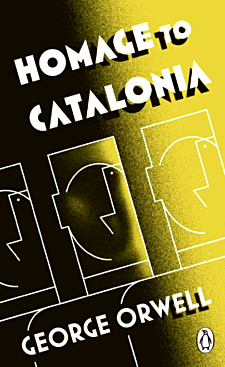 Homage to Catalonia is Orwell’s personal account of his observations in the Spanish Civil War. The book was first published in the United Kingdom in 1938.
Homage to Catalonia is Orwell’s personal account of his observations in the Spanish Civil War. The book was first published in the United Kingdom in 1938.
In 1936, originally intending merely to report on the Spanish Civil War as a journalist, George Orwell found himself embroiled as a participant—as a member of the Workers’ Party of Marxist Unity.
Fighting against the Fascists, he described in painfully vivid and occasionally comic detail life in the trenches—with a “democratic army” composed of men with no ranks, no titles, and often no weapons—and his near fatal wounding. As the politics became tangled, Orwell was pulled into a heartbreaking conflict between his own personal ideals and the complicated realities of political power struggles.
Considered one of the finest works by a man V. S. Pritchett called “the wintry conscience of a generation,” Homage to Catalonia is both Orwell’s memoir of his experiences at the front and his tribute to those who died in what he called a fight for common decency. This edition features a new foreword by Adam Hochschild placing the war in greater context and discussing the evolution of Orwell’s views on the Spanish Civil War.
“One of Orwell’s very best books and perhaps the best book that exists on the Spanish Civil War.” — The New Yorker
George Orwell (1903-1950) served with the Imperial Police in Burma, fought with the Republicans during the Spanish Civil War, and was a member of the Home Guard and a writer for the BBC during World War II. He is the author of many works of non-fiction and fiction.
Homage to Catalonia
George Orwell
Penguin Classics
2013
256 Pages
£6.99
Paperback
ISBN10 0141393025
ISBN13 9780141393025
Homage to Catalonia by George Orwell
fleursdumal.nl magazine
More in: - Book News, - Book Stories, Archive O-P, Art & Literature News, George Orwell, MUSEUM OF PUBLIC PROTEST, REPRESSION OF WRITERS, JOURNALISTS & ARTISTS, WAR & PEACE
 Draag jij je gedicht voor tijdens de Nationale Herdenking op 4 mei?
Draag jij je gedicht voor tijdens de Nationale Herdenking op 4 mei?
Wil jij je gedicht voordragen aan de koning en koningin, minister-president, oorlogsveteranen en bijna 3 miljoen kijkers? Doe dan mee aan de jaarlijkse dichtwedstrijd Dichter bij 4 mei. Deze wedstrijd wordt georganiseerd in samenwerking met het Nationaal Comité 4 en 5 mei en vindt ieder jaar in een andere provincie plaats. Dit jaar is dat de provincie Noord-Holland.
Open Poëzieworkshop
Doet jouw school niet mee aan het project Dichter bij 4 mei? Wil je toch meedoen, ben je tussen de 14 en 19 jaar oud en woonachtig in de provincie Noord-Holland? Geef je op voor de open poëzieworkshop op zaterdag 14 januari 2017 in Fort aan de Sint Aagtendijk in Beverwijk. Of stuur voor 1 februari 2017 maximaal drie gedichten naar 4mei@poeziepaleis.nl.
Dichter bij 4 mei
Dichter bij 4 mei is een poëziewedstrijd voor jongeren tussen de 14 en 19 jaar rondom het thema ‘herdenken’. De winnaar van de dichtwedstrijd mag zijn of haar gedicht voordragen op de Dam tijdens de Nationale Herdenking op 4 mei. De andere drie winnaars mogen hun gedicht voordragen tijdens de herdenkingen in de voormalige kampen Westerbork, Vught en Amersfoort.
Thema: herdenken
“Tijdens de Nationale Herdenking op 4 mei herdenken wij allen – burgers en militairen – die in het Koninkrijk der Nederlanden of waar dan ook ter wereld zijn omgekomen of vermoord sinds het uitbreken van de Tweede Wereldoorlog, in oorlogssituaties en bij vredesoperaties”
Door de Nationale Herdenking op de Dam en op andere plekken in het land komt iedereen Dichter bij 4 mei.
 Jouw gedicht op de Dam?
Jouw gedicht op de Dam?
Het Poëziepaleis zoekt samen met het Nationaal Comité 4 en 5 mei een dichttalent dat op 4 mei op de Dam zijn of haar gedicht wil voordragen. Wanneer mag je meedoen?
– Je bent tussen de 14 en 19 jaar;
– Je zit op het vmbo/ havo/ vwo/ MBO of ROC;
– Je bent woonachtig in de provincie Noord-Holland.
Hoe kun je meedoen?
Wil jij kans maken op één van de finaleplaatsen, stuur dan voor 1 februari 2017 maximaal drie gedichten naar 4mei@poeziepaleis.nl en zorg dat je gedicht voldoet aan de volgende punten:
– Het thema is herdenken;
– Het gedicht is maximaal 25 regels lang;
– Het taalgebruik is passend;
– Het gedicht is geschikt om voor te dragen.
# Meer informatie op website poëziepaleis
fleursdumal.nl magazine
More in: Art & Literature News, AUDIO, CINEMA, RADIO & TV, Children's Poetry, In Memoriam, Literary Events, POETRY ARCHIVE, WAR & PEACE
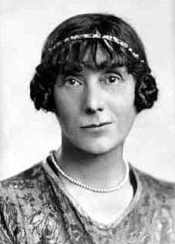
Jessie Pope
(1868 – 1941)
The Zeppelin Armada
‘To-Day, since Zeppelins are in the air,
And folks glance skywards as they go their ways,
Let us hark back a bit to an affair
That happened in Queen Bess’s sturdy days,
When the Armada, backed by Spanish lust
A fleet that floating palaces resembled
Sailed proudly forth to crush us in the dust,
While all the tremulous in England trembled.
What was the fate of those unwieldy craft ?
Our little frigates made of British oak
Harassed the mighty galleons fore and aft,
Handy to strike and shun the counterstroke.
The Great Invasion ended in defeat.
No more could Philip play the part of mocker,
The rout of the Armada was complete,
And down it went to Davy Jones’s locker.
What frigates did in 1558
May be repeated in the air to-day,
When clumsy Zeppelins may meet their fate
From aeroplanes that sting and dart away.
A well-equipped and handy air patrol
Would circumvent an aerial attack.
If London is to be the Zeppes’ goal,
It’s up to us to see they don’t go back!
Jessie Pope
fleursdumal.nl magazine
More in: *War Poetry Archive, Archive O-P, CLASSIC POETRY, WAR & PEACE

Jessie Pope
(1868 – 1941)
War Girls
‘There’s the girl who clips your ticket for the train,
And the girl who speeds the lift from floor to floor,
There’s the girl who does a milk-round in the rain,
And the girl who calls for orders at your door.
Strong, sensible, and fit,
They’re out to show their grit,
And tackle jobs with energy and knack.
No longer caged and penned up,
They’re going to keep their end up
‘Til the khaki soldier boys come marching back.
There’s the motor girl who drives a heavy van,
There’s the butcher girl who brings your joint of meat,
There’s the girl who calls ‘All fares please!’ like a man,
And the girl who whistles taxi’s up the street.
Beneath each uniform
Beats a heart that’s soft and warm,
Though of canny mother-wit they show no lack;
But a solemn statement this is,
They’ve no time for love and kisses
Till the khaki soldier boys come marching back.
Jessie Pope
fleursdumal.nl magazine
More in: *War Poetry Archive, Archive O-P, CLASSIC POETRY, WAR & PEACE
Unveiling of the Stele for the year 2015-2016 # Reporter’s Memorial Tenth anniversary # Reporter’s Memorial – 17 00 – Thursday 6 October 2016
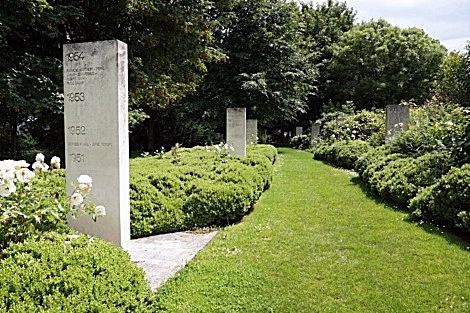
Ten years ago, the Reporter’s Memorial was inaugurated in Bayeux. Upon the unveiling of the 2015 stele, Reporters Without Borders will gather families and loved ones of the journalists killed on the job in the last ten years.
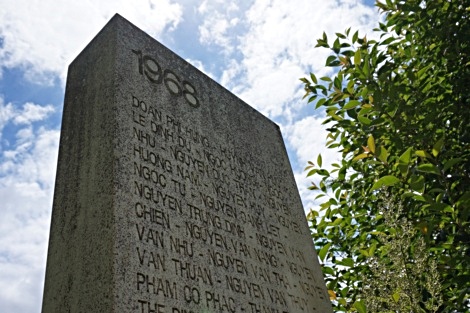
In 2015, 110 journalists have perished because of their profession or in dubious circumstances. Reporters Without Borders assures that of those 110, 67 have been killed for the sole reason of being journalists. In total, 787 journalists have been killed on the job since 2005. To that number, 27 netizens and 7 media associates can be added. This worrisome situation can be explained by the peak of violence against journalists in the last decade. They are now deliberately targeted and all the efforts put toward their safety have failed so far.
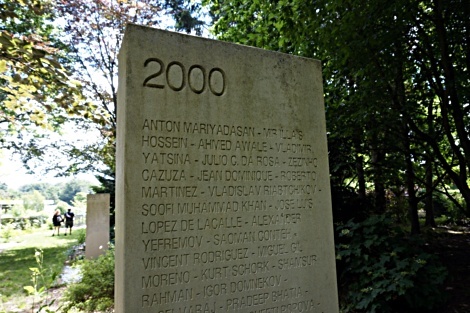
« It is imperative to set up a concrete mechanism for the application of the international law for the protection of journalists », declares Christophe Deloire, General Secretary of Reporters Without Borders. « Today, violent non-state actors have targeted journalists while numerous states do not respect their obligations. More than 800 reporters have been killed in the last ten years. Their death must be met with reactions that match the urgency of the situation. A special representative for the protection of journalists with the United Nation Secretary must be immediately appointed. »
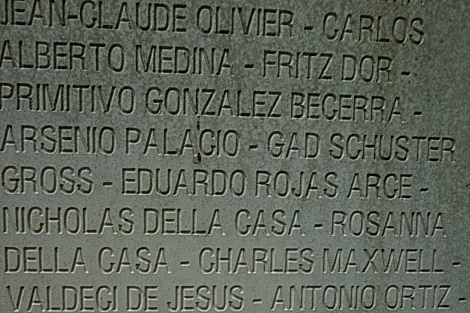
Families have decided to create a stele for all the reporters who disappeared while on a mission. This monument entitled “Missing In Action”, will be placed and inaugurated this year. It takes the form of a shadow and symbolizes the absence of those whose bodies have never been found.
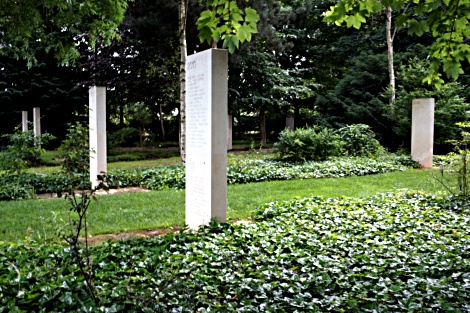
Present will be: Diane Foley, Claudine Kent (companion of David Gilkey dead in Afghanistan), Maryvonne Lepage, Deo Namujimbo, Elena Milachina for remembering Anna Politkoskaïa assasinated 10 years ago.
Mémorial des reporters
Boulevard Fabian Ware
Direct access from rue de Verdun, Bayeux FR
Free admission
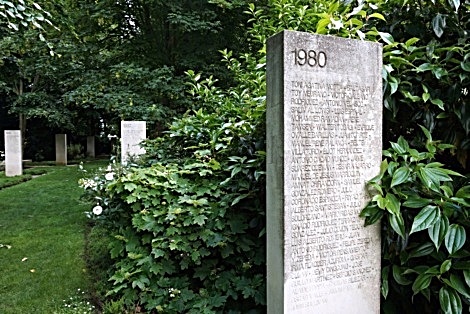
# more information on website Prix Bayeux – Calvados (des correspondents de guerre)
# more information on Reporters without Borders
fleursdumal.nl magazine
Photos: Jef van Kempen (FdM 2016)
More in: AUDIO, CINEMA, RADIO & TV, DICTIONARY OF IDEAS, Jef van Kempen Photos & Drawings, MUSEUM OF PUBLIC PROTEST, PRESS & PUBLISHING, REPRESSION OF WRITERS, JOURNALISTS & ARTISTS, WAR & PEACE
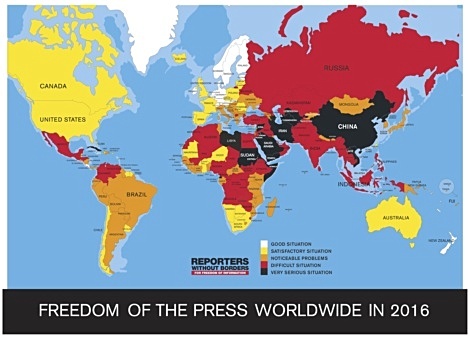
For 23 years now, the Bayeux-Calvados Award for war correspondents has for objective to give the floor to those who help us get a better understanding of the world: war correspondents. It is with a tremendous satisfaction that we have observed a growing and enlightened public over the years. Today, within a complicated and tensed national and international context, this week of reflection is, more than ever, necessary.
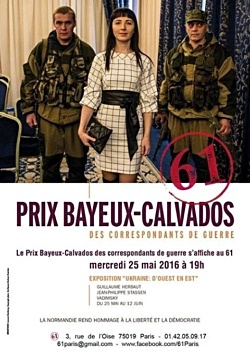 REPORTERS SANS FRONTIÈRES / REPORTERS WITHOUT BORDERS
REPORTERS SANS FRONTIÈRES / REPORTERS WITHOUT BORDERS
Major crises are reaching the planet and the Bayeux-Calvados Award for war correspondents is, once again, shedding the light on the upheaval of our time. Far from trying to upset the viewers, the photographs displayed within the exhibitions are here for people to think: the consequences of the conflict in Syria, the crisis of refugees, the movement of populations, criminality that, in Mexico, is turning into an armed conflict… A sound exhibition, never heard before, created in association with the French radio France Inter will pay tribute to radio reporters present in the theatres of war. The meetings of the Bayeux-Calvados Award will also shed a light on conflicts that have been forgotten and will allow the viewers time to reflect, in the midst of the news that is often misrepresented. A long list of rendez-vous where professionals ever so numerous and a faithful public will be able to exchange, share and enhance their knowledge of the world.
During the 2016 edition, student actions – which includes the Regional prize for students and trainees of Normandy and the Bayeux-Calvados Award classes- are expending to the entire region of Normandy. Today, media literacy is more than a duty, it’s a necessity. Film screenings for secondary school students, viewpoint of 15 year-olds and meetings between students and professionals are at the heart of the Bayeux-Calvados Award.
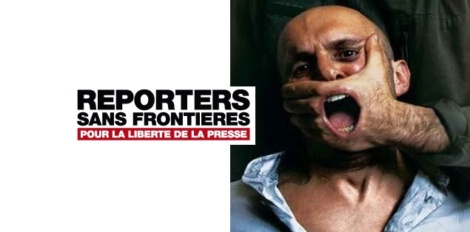
For the last 23 years, the Bayeux – Calvados Award for War Correspondents has been bringing together international journalists from the field to meet the public, tell human stories and provide explanation and background to areas of tension around the world.
Next edition of the Bayeux – Calvados Award for war correspondents will be taking place from 3 to 9 October 2016 in Bayeux FR.
Jean – Claude Guillebaud, a major figure in journalism as a writer and former war correspondent, will serve as President of the Jury for this 23rd edition.
A week of meetings on international news On the program for october: original exhibitions, debate evenings, screenings, book fair, events for schools… The Bayeux Calvados award is also a week of meetings, exchanges between the public and reporter s. Unique times on international news which constitutes the strength of the Bayeux Calvados award meetings. A real public plebiscite. Journalists : you have from now until 6 June to send us your work Photo, radio, television and written press reports on a conflict or news event relating to the fight for freedom and democracy mus t be submitted before the 6 th June to be considered for the 2016 selection. They must have been made between the 1st June 2015 and the 31st May 2016. There is a €7,000 grant to be won in each category.
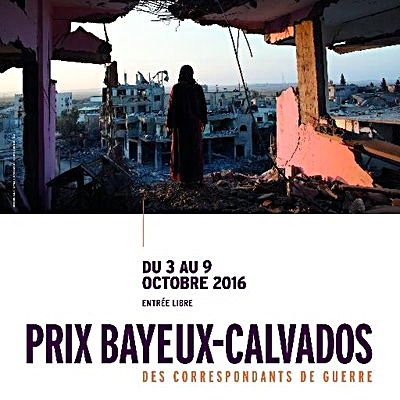
The meeting takes place from 3 to 9 October along with special correspondents, women and men of the ground, who, through their evidence, wake up our senses
# more information on website Prix Bayeux – Calvados (des correspondents de guerre)
# more information on Reporters without Borders
fleursdumal.nl magazine
More in: AUDIO, CINEMA, RADIO & TV, DICTIONARY OF IDEAS, MUSEUM OF PUBLIC PROTEST, PRESS & PUBLISHING, REPRESSION OF WRITERS, JOURNALISTS & ARTISTS, WAR & PEACE
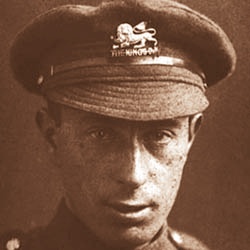
Isaac Rosenberg
(1890 – 1918)
Break of Day in the Trenches
The darkness crumbles away.
It is the same old druid Time as ever,
Only a live thing leaps my hand,
A queer sardonic rat,
As I pull the parapet’s poppy
To stick behind my ear.
Droll rat, they would shoot you if they knew
Your cosmopolitan sympathies.
Now you have touched this English hand
You will do the same to a German
Soon, no doubt, if it be your pleasure
To cross the sleeping green between.
It seems you inwardly grin as you pass
Strong eyes, fine limbs, haughty athletes,
Less chanced than you for life,
Bonds to the whims of murder,
Sprawled in the bowels of the earth,
The torn fields of France.
What do you see in our eyes
At the shrieking iron and flame
Hurled through still heavens?
What quaver—what heart aghast?
Poppies whose roots are in man’s veins
Drop, and are ever dropping;
But mine in my ear is safe—
Just a little white with the dust.
Isaac Rosenberg poetry of The Geat War
fleursdumal.nl magazine
More in: Archive Q-R, Rosenberg, Isaac, WAR & PEACE
Thank you for reading Fleurs du Mal - magazine for art & literature